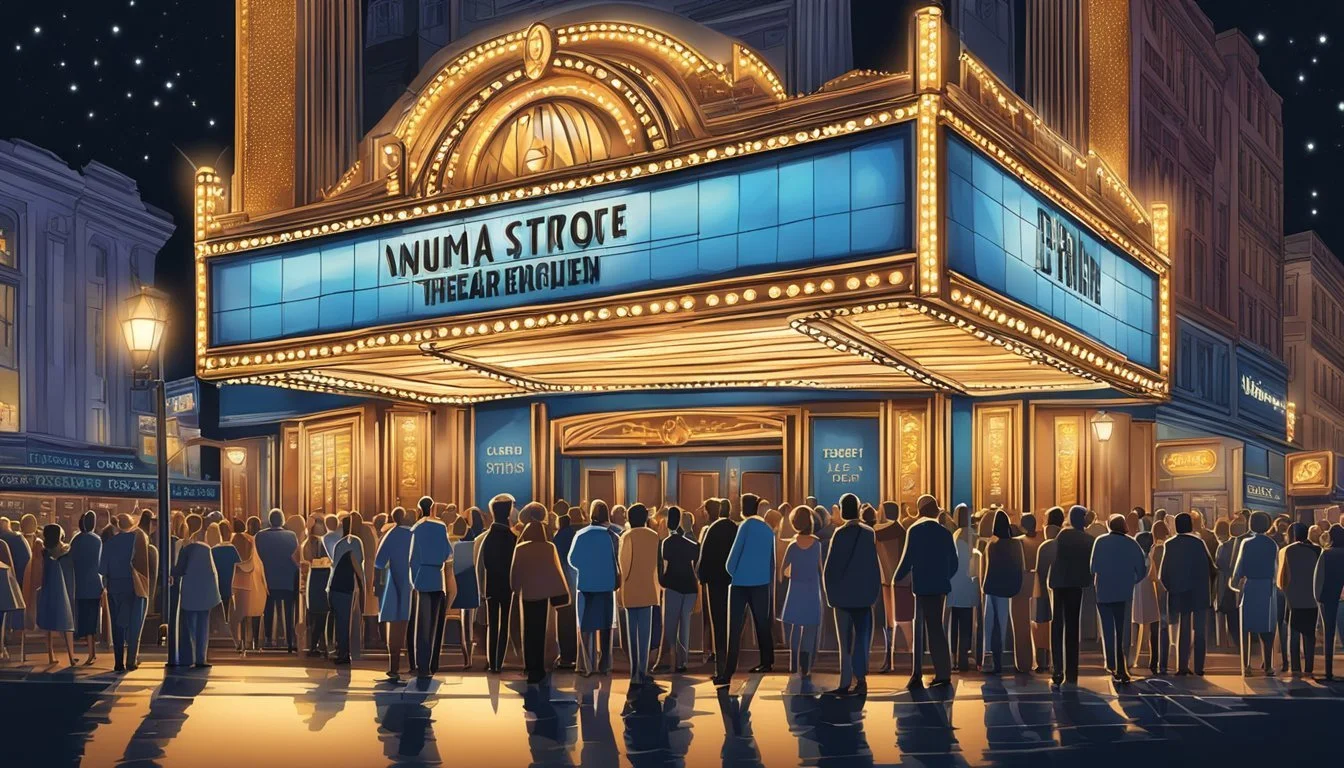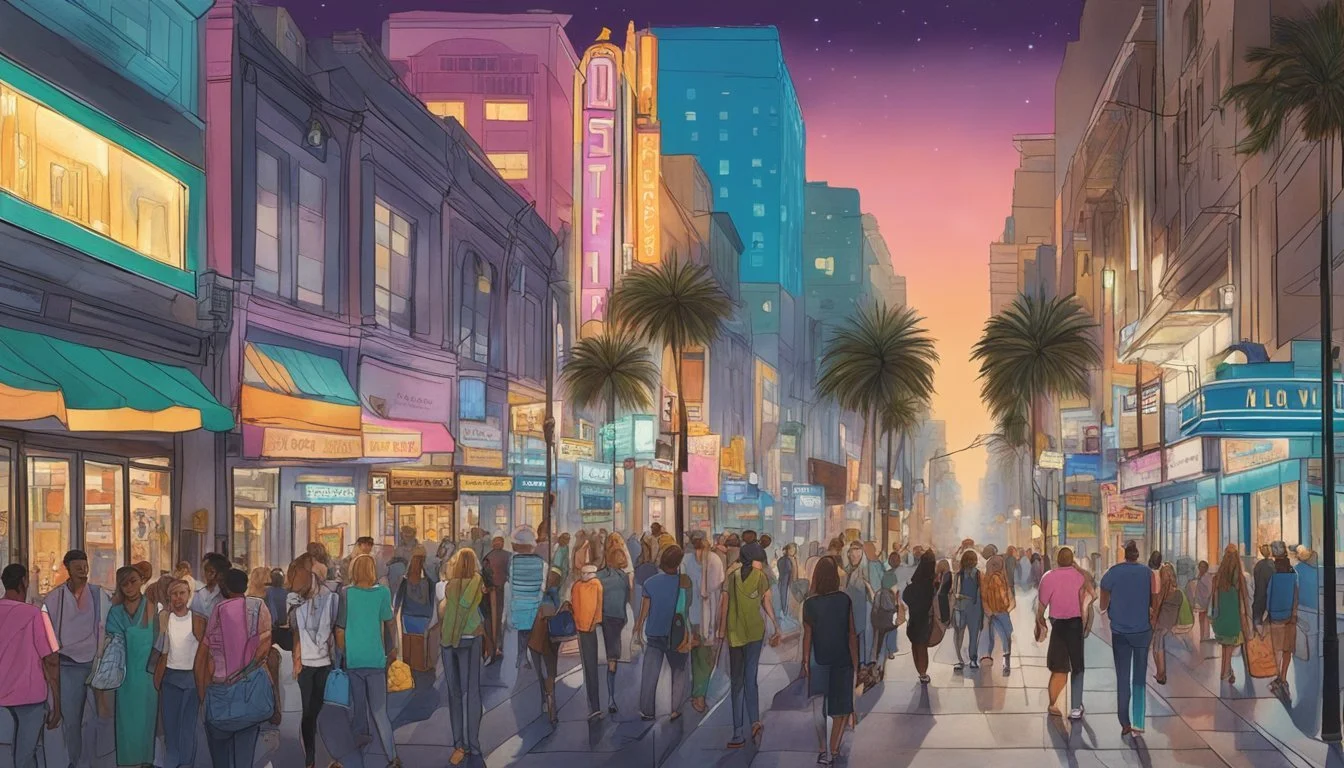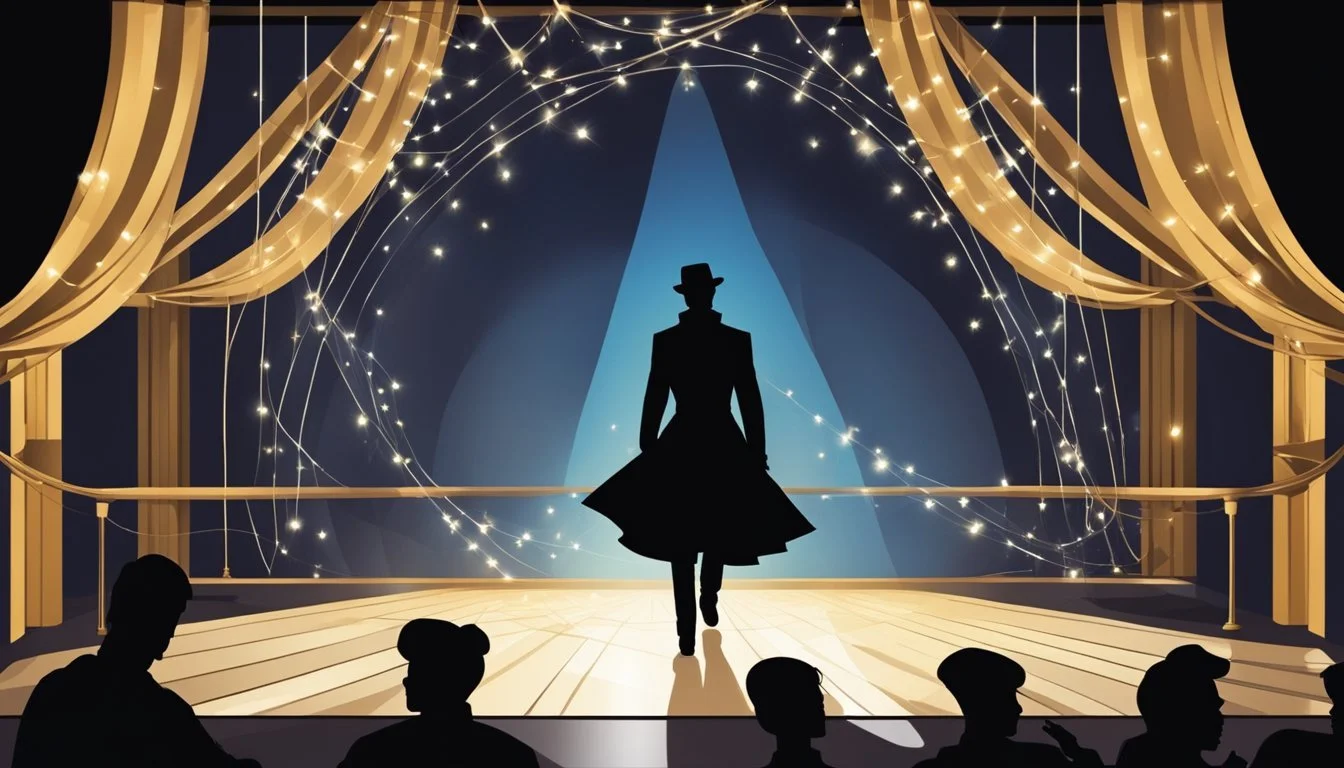Broadway and Bipolar: Joshua Logan's Mental Health Journey
From Triumph to Struggle
Joshua Logan, a titan of Broadway and Hollywood, left an indelible mark on American theater while privately battling bipolar disorder. His illustrious career spanned decades, with acclaimed productions like "South Pacific" and "Mister Roberts" cementing his status as a creative powerhouse.
Logan's 1976 autobiography "Josh: My Up-and-Down, In-and-Out Life" candidly detailed his struggles with mental health, offering a rare glimpse into the challenges faced by artists of his era. This openness was groundbreaking at a time when mental illness was heavily stigmatized, especially in the entertainment industry.
Logan's story illuminates the intersection of artistic genius and mental health challenges. His experiences underscore the importance of understanding and supporting individuals with bipolar disorder, particularly in high-pressure creative fields. Logan's legacy extends beyond his artistic achievements, serving as a testament to the resilience of those navigating mental health issues while pursuing their passions.
The Early Life of Joshua Logan
Joshua Logan's early years shaped his trajectory as a pioneering figure in American theater. His upbringing in Texas, education at Princeton, and initial Broadway experiences laid the foundation for his illustrious career.
Formative Years in Texarkana
Joshua Lockwood Logan III was born on October 5, 1908, in Texarkana, Texas. His father, Joshua Lockwood Logan, tragically committed suicide when Joshua was only three years old. This event profoundly impacted young Logan's life.
Following his father's death, Logan moved with his mother Susan and younger sister Mary Lee to Mansfield, Louisiana. They lived with his maternal grandparents, providing stability during a challenging time.
The small-town Southern atmosphere of his childhood later influenced Logan's artistic sensibilities and choice of theatrical settings.
Princeton University and Triangle Club
In 1927, Logan enrolled at Princeton University, marking a significant turning point in his life. At Princeton, he discovered his passion for theater and honed his skills as a director and performer.
Logan became actively involved with the Triangle Club, Princeton's renowned musical-comedy group. This experience proved instrumental in shaping his future career path.
Under the mentorship of theater professor Donald Oenslager, Logan developed a keen eye for stagecraft and direction. His time at Princeton laid the groundwork for his innovative approach to theater production.
Early Broadway Involvements
After graduating from Princeton in 1931, Logan wasted no time in pursuing his theatrical ambitions. He quickly made his way to New York City, the epicenter of American theater.
Logan's Broadway debut came in 1932 when he appeared as an actor in "Carry Nation." This initial foray into professional theater provided valuable insights into the inner workings of Broadway productions.
In 1935, Logan co-directed his first Broadway show, "To See Ourselves." This marked the beginning of his transition from actor to director, a role in which he would ultimately make his most significant contributions to American theater.
Broadway Ascendancy and Acclaim
Joshua Logan's career on Broadway reached new heights in the 1940s and 1950s. His collaborations with legendary composers and groundbreaking productions earned him critical acclaim and prestigious awards.
Collaborations With Richard Rodgers and Oscar Hammerstein
Logan formed a fruitful partnership with Richard Rodgers and Oscar Hammerstein II. Their first major collaboration was "South Pacific" in 1949. Logan co-wrote the book and directed the musical, which became an instant hit on Broadway.
The trio worked together again on "Me and Juliet" in 1953. Though not as successful as their previous venture, it further solidified Logan's standing in the theater world.
Logan's work with Rodgers and Hammerstein showcased his ability to bring complex stories and characters to life on stage. His directing style complemented their music and lyrics, creating memorable theatrical experiences.
Pioneering Works: 'South Pacific' and 'Picnic'
"South Pacific" broke new ground in musical theater. The show tackled themes of racial prejudice and war, setting it apart from lighter fare typical of the era. Logan's direction brought nuance to these challenging topics.
In 1953, Logan directed William Inge's play "Picnic." This dramatic work explored small-town life and repressed desires. Logan's staging emphasized the tension and yearning underlying the characters' interactions.
Both productions demonstrated Logan's versatility as a director. He moved seamlessly between musicals and straight plays, bringing depth and insight to each genre.
Winning the Pulitzer Prize for Drama
Logan's work on "South Pacific" earned him the Pulitzer Prize for Drama in 1950, shared with Rodgers and Hammerstein. This prestigious award recognized the musical's artistic merit and social significance.
The Pulitzer cemented Logan's status as a leading figure in American theater. It acknowledged his contributions to both the creative and thematic aspects of the production.
This recognition came at the height of Logan's career, validating his artistic choices and innovative approach to storytelling on stage. The award highlighted Broadway's growing influence on American culture and discourse.
Transition to Hollywood
Joshua Logan's move to Hollywood marked a pivotal shift in his career. He brought his Broadway expertise to the film industry, collaborating with major stars and tackling ambitious projects.
Major Film Projects
Logan's transition to Hollywood began in the 1930s. He worked briefly as a dialogue director for David O. Selznick. His directorial debut came with "I Met My Love Again" in 1938.
Logan's most notable Hollywood achievements included adaptations of his Broadway successes. He directed the film versions of "Picnic" (1955) and "South Pacific" (1958). These projects showcased his ability to translate stage productions to the screen.
"Picnic" earned Logan an Oscar nomination for Best Director. The film's success cemented his status in Hollywood.
Working With Hollywood Stars
Logan collaborated with some of the biggest names in the film industry. He directed James Stewart in "Mister Roberts" (1955), a film that also featured Henry Fonda.
His work with Marilyn Monroe on "Bus Stop" (1956) was particularly noteworthy. Logan helped Monroe deliver one of her most critically acclaimed performances.
The director's ability to work with stars extended beyond the camera. He wrote about his experiences in his memoir "Movie Stars, Real People, and Me."
Logan's approach to directing actors drew from his theater background. He often encouraged naturalistic performances, a style that resonated with many Hollywood stars.
Personal Struggles and Mental Health
Joshua Logan faced significant mental health challenges throughout his life. His bipolar disorder profoundly affected both his personal life and professional career in the theater world.
The Silent Battle With Bipolar Disorder
Joshua Logan's struggle with bipolar disorder remained largely hidden from the public eye for many years. He experienced intense mood swings, alternating between periods of manic energy and depressive episodes. These fluctuations often coincided with his creative bursts and professional setbacks.
Logan's autobiography, "Josh: My Up and Down, In and Out Life," provides a candid look at his experiences. He describes the heightened productivity during manic phases, followed by debilitating depressive periods that left him unable to work.
The director's symptoms went undiagnosed for decades. It wasn't until later in life that Logan received proper treatment, including lithium therapy, which helped stabilize his moods.
Impact of Mental Health on Work
Logan's bipolar disorder significantly influenced his theatrical career. During manic episodes, he displayed remarkable creativity and worked tirelessly on productions. These periods often resulted in some of his most acclaimed works.
However, depressive phases could derail projects and strain professional relationships. Logan sometimes struggled to meet deadlines or maintain consistent work quality due to his condition.
The unpredictability of his mental state posed challenges for collaborators and cast members. Despite these difficulties, many recognized Logan's brilliance and continued to work with him.
His experiences with bipolar disorder also informed his artistic choices. Logan's productions often explored themes of emotional turmoil and psychological complexity, reflecting his personal struggles.
Later Years and Legacy
Joshua Logan's career spanned decades, leaving an indelible mark on American theater and film. His life was shaped by both artistic triumphs and personal struggles with mental health.
Enduring Works and Continued Influence
Logan's later Broadway productions included "Camelot" in 1960 and "Mr. President" in 1962. While these shows didn't achieve the same level of success as his earlier works, they demonstrated his ongoing commitment to musical theater.
"Camelot" became particularly associated with the Kennedy administration, adding to its cultural significance. The 1967 film adaptation, which Logan directed, helped immortalize the musical for future generations.
Logan's earlier works continued to be revived and celebrated. "South Pacific" and "Picnic" remain staples of theater repertoires, showcasing his ability to blend romance, drama, and social commentary.
Diagnosis and Life With Progressive Supranuclear Palsy
In his later years, Logan faced a new health challenge: Progressive Supranuclear Palsy (PSP). This rare brain disorder affected his mobility and speech, presenting additional obstacles in his daily life.
Despite this diagnosis, Logan remained engaged with the theater world as much as possible. He published his autobiography "Josh: My Up and Down, In and Out Life" in 1976, offering candid insights into his experiences with bipolar disorder and his prolific career.
Logan's openness about his mental health struggles helped pave the way for greater awareness and acceptance in the entertainment industry. His legacy extends beyond his artistic achievements, encompassing his role in destigmatizing mental illness.
Joshua Logan's Theatrical Innovations
Joshua Logan made significant contributions to American theater through his innovative directing techniques and introduction of new methods. His work revolutionized both stage and screen productions, leaving a lasting impact on the industry.
Revolutionizing Stage and Screen Directing
Logan's directing style broke new ground in theater and film. He pioneered the use of realistic sets and naturalistic acting, moving away from the more stylized approaches of earlier eras. His productions featured seamless scene transitions and a cinematic flow, blurring the lines between stage and screen.
Logan's work on musicals like "South Pacific" and "Mister Roberts" showcased his ability to blend dramatic elements with musical numbers. He emphasized emotional authenticity in performances, pushing actors to deliver more nuanced and relatable portrayals.
His innovations extended to technical aspects as well. Logan experimented with lighting and sound design to enhance the audience's immersion in the story. These techniques became widely adopted, influencing future generations of directors.
Introducing Stanislavsky's Methods to American Theater
Logan played a crucial role in bringing Konstantin Stanislavski's acting methods to American theater. After studying at the Moscow Art Theatre in 1932, he incorporated these techniques into his directing process.
The "Method" emphasized emotional truth and psychological realism in acting. Logan encouraged actors to draw from personal experiences to inform their performances. This approach resulted in more authentic and compelling portrayals on stage.
Logan's integration of Stanislavski's methods helped shape the American acting style. His productions became known for their emotional depth and naturalistic performances. This influence extended beyond his own work, as many actors and directors trained under Logan adopted these techniques.
Selected Works and Achievements
Joshua Logan's career spanned Broadway and Hollywood, earning him acclaim and accolades. He directed several iconic musicals and films that left a lasting impact on American entertainment.
Broadway Hits and Notable Musicals
Logan's Broadway career flourished with groundbreaking productions. He directed "Annie Get Your Gun" in 1946, starring Ethel Merman, which became a massive hit. The show ran for 1,147 performances and won five Tony Awards.
In 1948, Logan helmed "Mister Roberts," a comedy-drama set on a U.S. Navy cargo ship. The play starred Henry Fonda and earned Logan a Tony Award for Best Director.
Logan's most celebrated work came with "South Pacific" in 1949. Co-written with Oscar Hammerstein II, the musical won the Pulitzer Prize for Drama and 10 Tony Awards, including Best Musical and Best Director for Logan.
Celebrated Films and Directorial Highlights
Logan successfully transitioned to film, directing notable adaptations of Broadway hits. His 1955 film version of "Picnic" won two Academy Awards and earned Logan a nomination for Best Director.
In 1957, Logan directed "Sayonara," starring Marlon Brando. The film explored interracial relationships in post-World War II Japan and won four Academy Awards. Logan received nominations for Best Director and Best Picture.
Logan's 1958 film "South Pacific" was a box office success. It won the Golden Globe for Best Motion Picture - Musical or Comedy and earned three Academy Award nominations.
In 1961, Logan was awarded the Golden St. George at the Moscow International Film Festival for "Fanny," further cementing his international reputation as a director.






